
For thousands of years, the Nile River and Egypt were weaved intrinsically in history rather than geography. The civilisation of ancient Egypt owed its survival to the annual flooding of the Nile and its deposit of fertile sediment.
The full map of the river, however, runs through the course of 10 countries, while the White Nile and the Blue Nile join hands together at the doors of Sudan.
And for Sudan, the Nile is a lifeline that makes the Roseires and Sennar dams possible, which are responsible for 80pc of the country's power generation as well as irrigating its famous Gezira Scheme.
In terms of geography, Ethiopia finds national pride in the Blue Nile canyon, since it is the headstream of the longest river in the world.
The Nile River has the same importance to all three countries: survival. Recognising this, the late Prime Minister of Ethiopia came to the public to commit the ever-flowing waters of the Blue Nile to the Grand Ethiopian Renaissance Dam, picking up the unfinished quest of Emperor Haile Selassie I.
Soon after laying the foundation edifice in 2011, the Dam became the epicentre of a dilemma with Sudan and Egypt over which country has the historical right to the water and the sovereignty to reduce its downstream flow.
The last nine years was followed by a series of negotiations in different formats, all of which were futile since the three countries couldn’t reach an agreement. During this time, the construction of the Dam reached 75pc.
Recently, Ethiopia disclosed to the public that it would get the ball rolling on the filling of the GERD in July despite not reaching an agreement with the riparian countries.
In retaliation, Egypt raised the stakes by dispatching a letter to the United Nations Security Council in an attempt to call the international community to intervene in the matter.
On the other hand, Egypt pushed the issue to the UN Security Council, keeping the African Union out of the picture.
“However, these negotiations were unsuccessful due to Ethiopia's obstructionism and prevarications," reads the letter of Sameh Shoukry, Egypt's minister of Foreign Affairs.
Initially, the International Panel of Experts; the Tripartite National Committee; a team of nine ministers from the countries; and the International Independent Scientific Research Group failed to bring the three countries to meet under the same terms.
Last week, the three countries agreed to resume talks on the GERD.
However, the Declaration of Principles (DoP) came to the rescue in 2015, which managed to put the three countries on the same page for the first time.
In this document, there is a provision that grants Ethiopia permission to implement the first filling of the GERD in parallel with the construction of the Dam.
Egypt has denied that this citation could be taken out of context, since the DoP grants the construction of the Dam while the filling of the GERD is to be governed by the rules and regulations to be agreed upon by the three countries.
Following the DoP, the co-riparian countries went on to hire BRL and Artelia to inspect the GERD’s hydrological simulation model during the filling process and environmental and socioeconomic impact assessments.
However, this solution went down the drain since the countries could not be persuaded to accept the submitted report. Soon after, Egypt sent a letter to the UN Security Council, and Ethiopia responded by writing its own letter to the Council.
“This isn’t an action to reply back to Egypt’s letter but rather to explain our stance on the current matter,” said Zerihun Abebe, a diplomat at the Ministry of Foreign Affairs and member of the negotiating team on the GERD.
"The reply of the spokesperson of the UN Security Council is an assertion to our original pursuit to solve the matter within the three countries," he added, “although Ethiopia is determined at all cost to commence the filling by July.”
Amidst the back and forth of letters to the international community, the UN Security Council stated its stance on the GERD.
“The Secretary-General underscores the importance of the 2015 Declaration of Principles on the GERD, which emphasises cooperation based on common understanding, mutual benefit, good faith, win-win, and the principles of international law," reads the statement from the UN Security Council. “The Secretary-General encourages progress toward an amicable agreement in accordance with the spirit of these Principles.”
This is not the first time Egypt has looked for a mediator in the Dam negotiations. Egypt also reached out to the United States and the World Bank to be observers on the issue.
However, Egypt claimed the United States had played the role of mediator in the negotiations in the letter to the Security Council.
This, however, overrides the provision of the DoP, which says that any inclusion of a mediator shall be under the agreement of the three parties. US intervention was solely the initiative of Egypt.
This first received criticism from the Ethiopian negotiators, since the International Panel of Experts had a deal to not let any observer or mediator be in the picture back in 2015 at Bishoftu.
In contradiction of its previous stance, Ethiopia agreed to the inclusion of the United States and the World Bank.
The diplomatic response was unprecedented in the case of GERD, according to Seleshi Bekele (PhD), ministry of Water, Irrigation & Energy.
“One thing to underline is we haven’t reached the level for the need of a mediator. Nothing has been exhausted yet,” Seleshi said. “Egypt’s main issue lies in the sharing agreement, which is the water allocation or drought management.”
The three parties agreed to hold four technical meetings among the water ministers and scheduled to complete the agreement by January 15, 2020. The agreement also entailed holding two more meetings in Washington, DC to assess the progress of the sessions.
After consecutive meetings at the beginning of this year, the three countries were able to agree that the fillings should take place during the rainy season from July to August and September in some conditions.
The first stage of the filling will take two years to complete, and it will allow the Dam's reservoir to retain 18.4 billion cubic metres of water. This storage is meant to begin the testing of the power plant by effectively releasing the water downstream.
Furthermore, the impoundment is carried out over two years, with 4.9 billion cubic metres of water in the first year and 13.5 cubic metres of water in the second year. This volume of water is taken from the Blue Nile's average flow of 49 billion cubic metres of water.
In late February, Ethiopia stood up the meeting in Washington, DC after the "Guidelines and Rules on the First Filling & Annual Operation of the GERD" document was prepared with technical input from the World Bank.
Egypt has different means of getting the UN Security Council to intervene as we get closer to July, according to a long-serving diplomat.
“There is a high chance they might ask their supporters to table the case to the UN Security Council,” said this diplomat. “From what we've heard, not many members of the Security Council are enthusiastic about seizing the issue of GERD, but it’s inevitable unless the issue is resolved.”
The recent development of Egypt trying to resume the talks over GERD isn’t quite clear on what they might have up their sleeve, according to the diplomat.
The 1929 Anglo-Egyptian treaty granted Egypt veto power on any construction on the Nile or its tributaries. The 1959 treaty, however, allotted the Nile water resources between the two countries, and guaranteed Egypt 55.5 billion cubic metres annually and Sudan 18.5 billion cubic metres without the inclusion of Ethiopia.
“One of the requests Egypt included in its letter to the UN is to stop Ethiopia from filling the reservoir. This is a brazen reflection of Egypt’s hegemonic attitude," reads a letter from Jesse Jackson, chairman and founder of the US Congressional Black Caucus, to the UN Security Council.
He went on to explain the Aswan Dam and how its reservoir was filled; it did not seek nor receive concurrence from Ethiopia. Even worse, though Ethiopia contributes 85pc of the Nile waters, Egypt did not consult Ethiopia when it diverted the Nile water outside of the basin boundary. This is a flagrant violation of international transboundary river laws.
Recognising that the issue of the GERD has garnered the attention of the international community, the Ministry of Foreign Affairs and the Ministry of Water, Irrigation & Energy have been on a diplomatic campaign in the last three weeks.
The ministries started meeting with ambassadors from Africa, Asia, the Pacific region and the Middle East, and giving briefings on the status of the GERD.
“This is a move to explain our position on the matter of the GERD,” said Rediwan Hussien, state minister for Foreign Affairs. “The meetings with the African ambassadors went quite well.”
“It was important to redress Egypt’s escalation of the matter to a political issue," he added. “This project is a development project in all aspects.” In addition, Prime Minister Abiy Ahmed (PhD) met with the Prime Minister of Sudan last week to sway that nation's change of heart since it was announced that the GERD was to be filled in July.
Abiy disclosed that Sudan would resume the talks on the GERD last week after a video call with the country's Prime Minister.
From a legal perspective, Egypt does not have the right to ask Ethiopia to stop the building process under any conditions, according to Ayman Salama, (PhD), an international law expert and member of the Egyptian Council for Foreign Affairs.
However, many academics deliberate on the filling of the GERD as a possible issue to its realisation.
If Egypt, Sudan and Ethiopia decide to fill the reservoir slowly, subtracting five percent of the monthly flow, it would minimise the downstream effects, according to Paul Block, assistant professor at the University of Wisconsin.
“Our analysis shows that the reservoir would never fill due to evaporation. Hydropower could be generated but never at design capacity if Ethiopia was to impound water at a much higher rate, say 25pc of the monthly flow," he said. “Certainly, the reservoir would fill, and they would be generating hydropower at a much sooner time,” says Block. "That, however, would mean lower flows reaching Sudan and Egypt."
PUBLISHED ON
May 23,2020 [ VOL
21 , NO
1047]
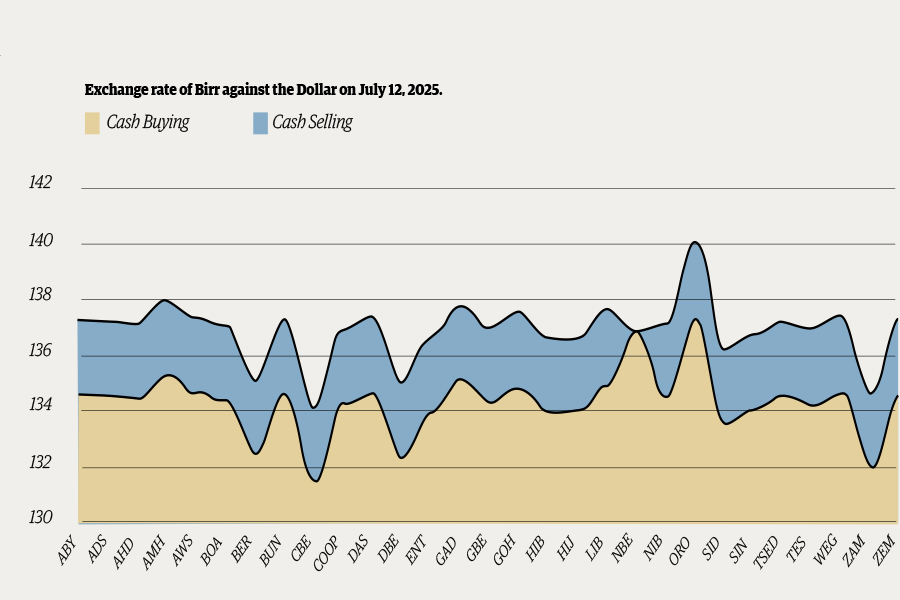
Money Market Watch | Jul 13,2025

Sunday with Eden | Sep 03,2022
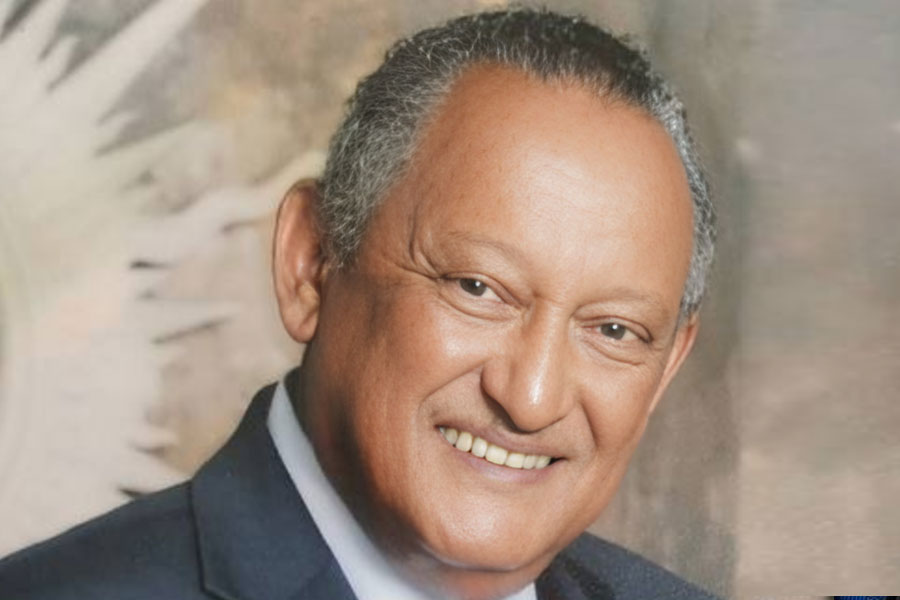
Obituary | Jan 28,2023

Editorial | Dec 30,2023

Fortune News | Jan 13,2024
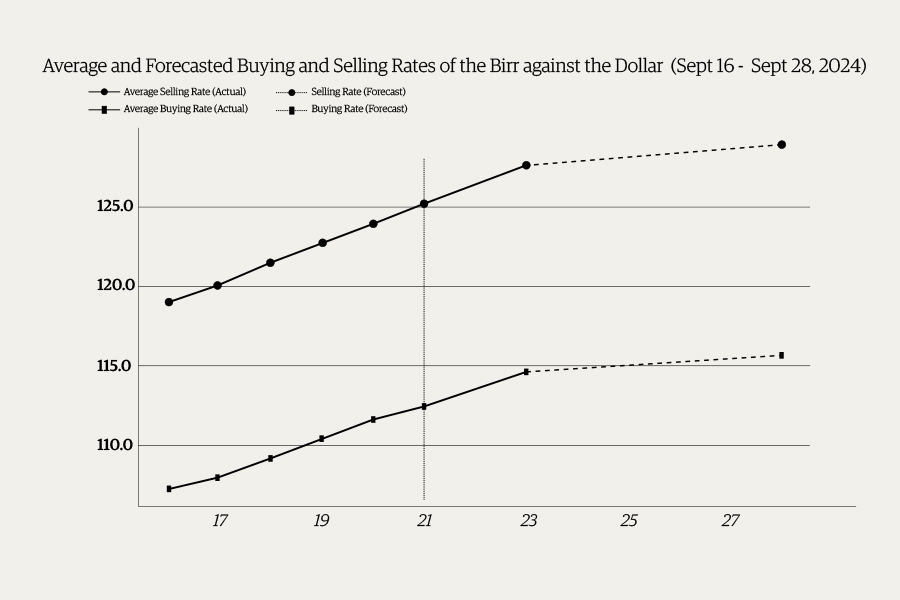
Money Market Watch | Sep 22,2024

Radar | Jun 08,2025
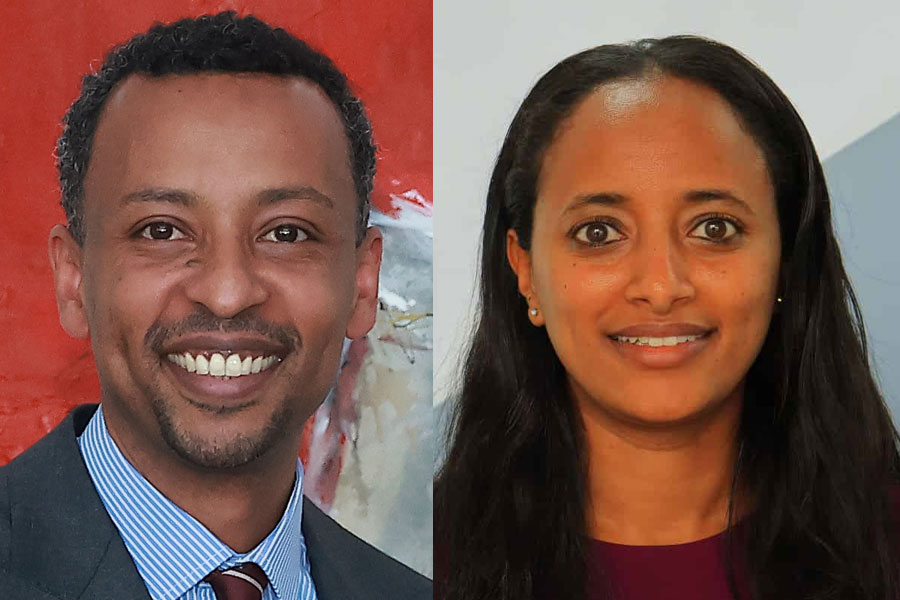
Fortune News | Aug 11,2024
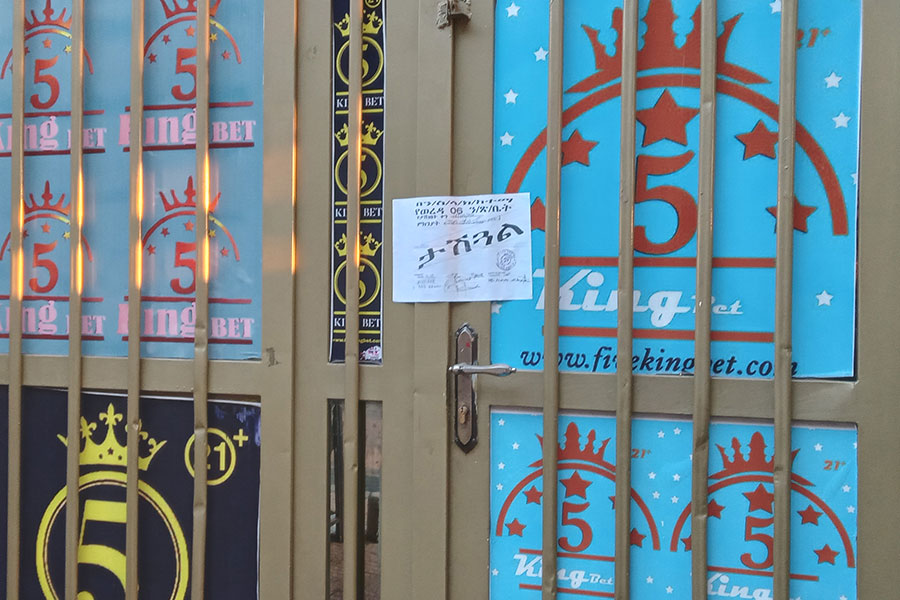
Featured |
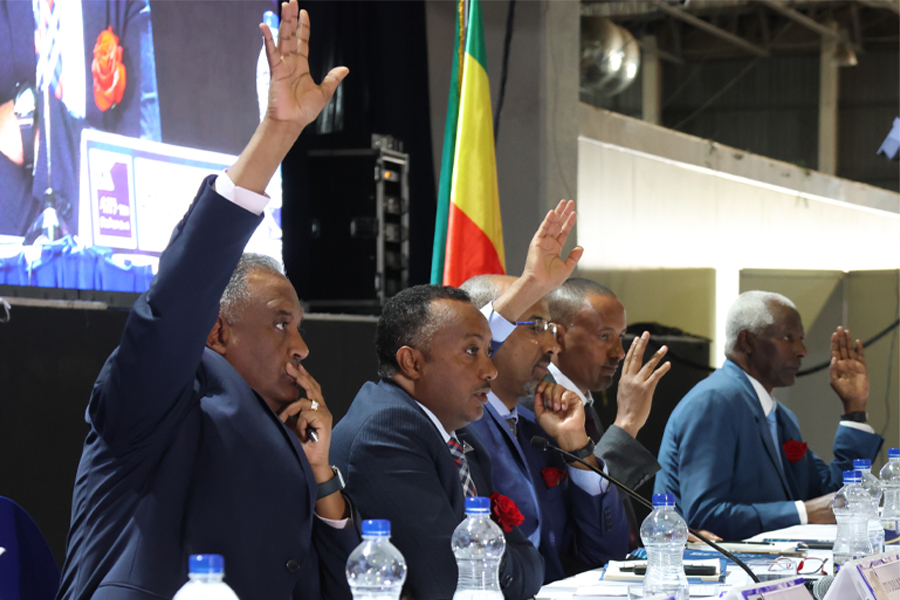
Radar | Oct 20,2024

Dec 22 , 2024 . By TIZITA SHEWAFERAW
Charged with transforming colossal state-owned enterprises into modern and competitiv...

Aug 18 , 2024 . By AKSAH ITALO
Although predictable Yonas Zerihun's job in the ride-hailing service is not immune to...

Jul 28 , 2024 . By TIZITA SHEWAFERAW
Unhabitual, perhaps too many, Samuel Gebreyohannes, 38, used to occasionally enjoy a couple of beers at breakfast. However, he recently swit...

Jul 13 , 2024 . By AKSAH ITALO
Investors who rely on tractors, trucks, and field vehicles for commuting, transporting commodities, and f...

Oct 25 , 2025
The regulatory machinery is on overdrive. In only two years, no fewer than 35 new pro...

Oct 18 , 2025
The political establishment, notably the ruling party and its top brass, has become p...

Oct 11 , 2025
Ladislas Farago, a roving Associated Press (AP) correspondent, arrived in Ethiopia in...

Oct 4 , 2025
Eyob Tekalegn (PhD) had been in the Governor's chair for only weeks when, on Septembe...